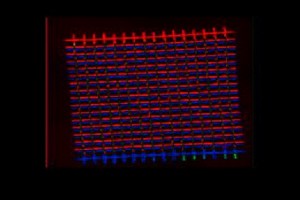Data from a single EEG electrode might predict cognitive decline, including dementia, in patients with Parkinson’s disease.
A few minutes of data recorded from a single electrode placed on top of the head may be sufficient to predict thinking problems, including dementia, in patients with Parkinson’s disease (PD). The findings also suggest the EEG measurements might help monitor and adjust cognitive side effects of Parkinson’s treatments.
The finding from a new University of Iowa study might help improve diagnosis of cognitive disability in PD and develop new biomarkers and targeted therapies for cognitive symptoms of the disease. “Cognitive decline, including dementia, is a significant and underappreciated symptom of Parkinson’s disease. Around 30% of patients can have cognitive symptoms at the beginning of the disease, and up to 80% will have cognitive problems at some point in their disease,” says Nandakumar Narayanan, MD, PhD, associate professor of neurology at the UI Carver College of Medicine and senior author of the new study, which is published in the Journal of Neurology, “Furthermore, although we have quite a few effective treatments for the motor symptoms of Parkinson’s, including medical therapies and deep brain stimulation, we have very few treatments for the cognitive aspects of Parkinson’s disease.”
The brain recordings were made using a very old, widely available technology called electroencephalography (EEG), which measured low-frequency brain waves, known as delta and theta waves, in the frontal region of study participants’ brains. The UI team found that reduced strength of these specific brain waves when a patient is required to engage in thinking is strongly linked to cognitive dysfunction in PD. The findings suggest that EEG, which is also inexpensive and non-invasive, might be useful for diagnosing cognitive impairment in PD patients.

.jpg)



Related Posts